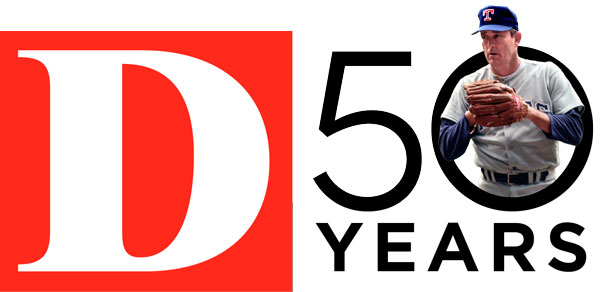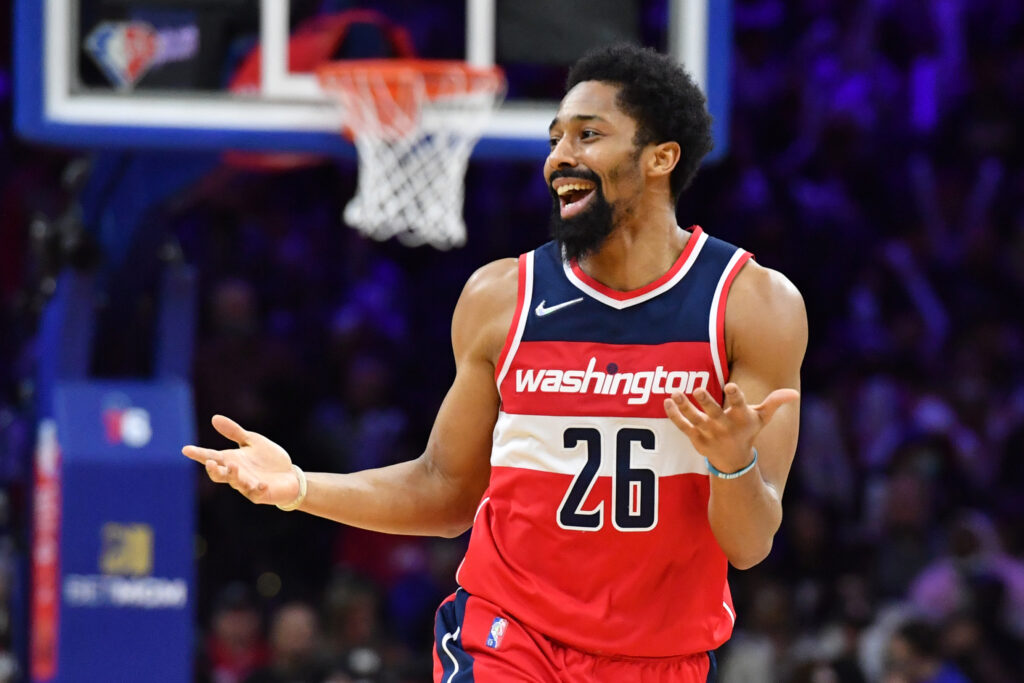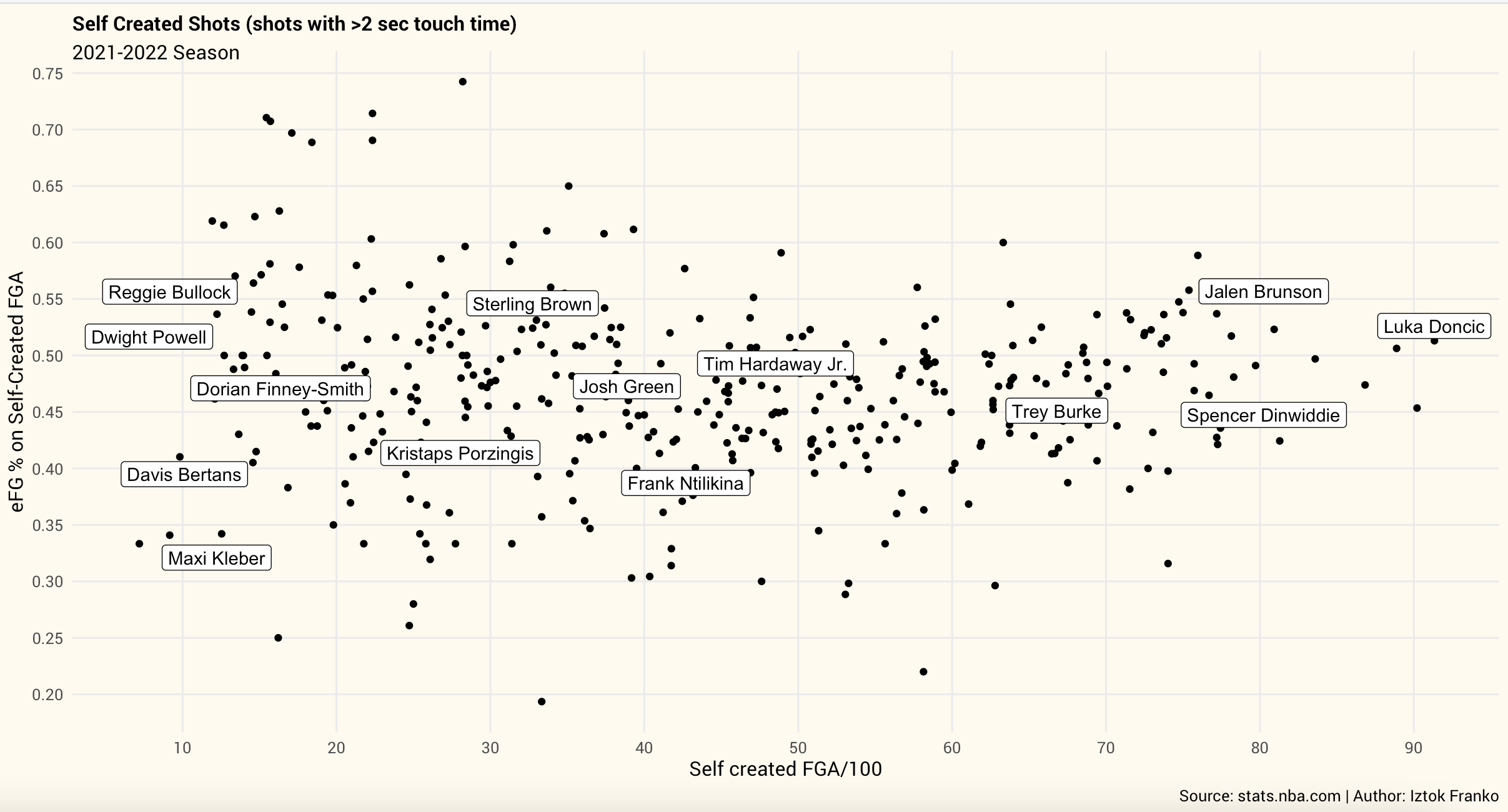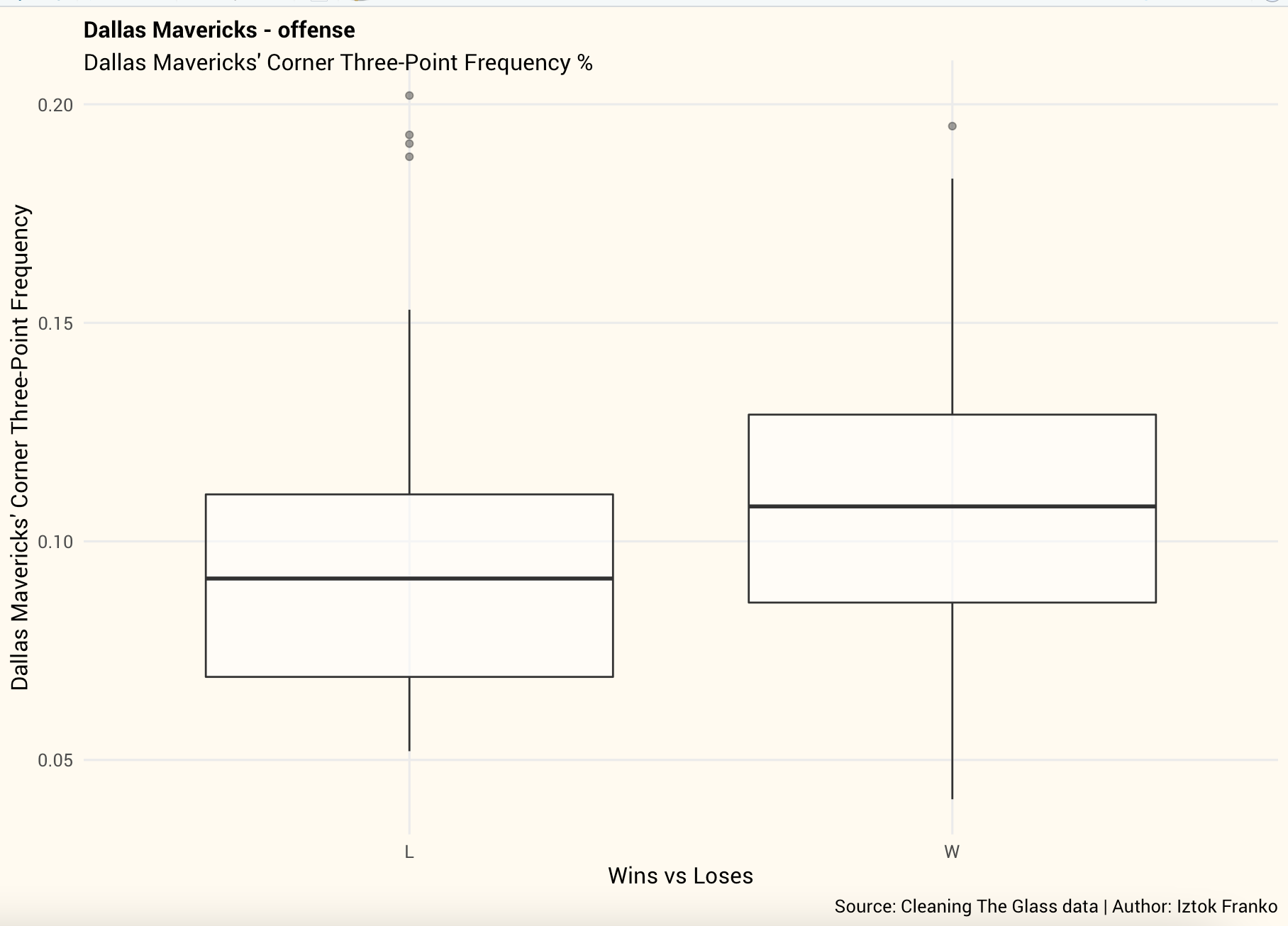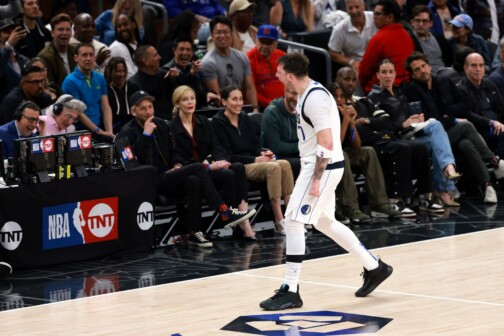The surprising deadline deal that sent Kristaps Porzingis to the Washington Wizards was all about moving on. In fact, the Mavericks were so motivated to move on from Porzingis that they were willing to take a step back now in hopes that they can move forward in the future.
But while future flexibility sounds great for a team whose roster had mostly maxed out its talent, the Mavericks are not a rebuilding team. They are fighting for home-court advantage in the playoffs and have been the third-best team in the NBA by point differential since January 1.
So the key question is: how big of a step back are we talking about? And the answer lies in the wild card in this deal, Spencer Dinwiddie.
The Mavericks have played well without Porzingis this season—they won 60 percent of their games without KP compared to 55 percent of the games in which the Latvian played—but there will be pressure to get Dinwiddie rolling as soon as possible. Case in point: Saturday’s loss to the Los Angeles Clippers, when two starters (Dorian Finney-Smith and Dwight Powell) and the entire bench combined for 13 measly points. Moving Porzingis after Tim Hardaway Jr.’s injury has created a scoring void, and now that Jalen Brunson is the unquestioned second-best scoring option on the team, Dinwiddie needs to become the third. Fast.
While Mavs fans will be happy to not see Porzingis’ name pop up on the Mavericks’ injury list anymore, Dinwiddie comes with his own health concerns. In his introductory press conference, he discussed the challenge of trying to get his full rhythm back in his first months coming off an ACL injury that forced him to miss almost the entire 2020-21 season.
Getting back to full speed wasn’t Dinwiddie’s only challenge during his short stint in the nation’s capital. He also struggled with the expectations to be the Wizards’ second scoring option next to Bradley Beal while fitting into their equal-opportunity offense.
Now Dinwiddie will have to find his rhythm and place on a new team on the fly, trying to jell with the Mavericks’ main two scorers, Doncic and Brunson, who also happen to be this team’s other ball handlers. The fit with the Mavericks’ Slovenian superstar, in particular, will determine how successful—and probably how long—Dinwiddie’s Mavericks tenure lasts.
Playing next to Doncic is not the easiest task for any ball-handling guard, since the job description of a ball handler entails, you know, actually handling the ball. It’s a paradox: the Mavs need more ball handlers and they need those ball handlers to be comfortable not handling the ball. Coexisting with Doncic means being able to change roles and play styles throughout the course of the game. When Doncic controls the ball, you need to hit spot-up shots and attack the gaps. Then, when he subs out or takes a possession off, you need to be able to run the offense and create out of the pick-and-roll.
It’s demanding, and it’s not for everyone. Jalen Brunson is great at playing different styles from possession to possession. Josh Richardson, Delon Wright, and Dennis Smith Jr.? Not so much. At his introductory presser, Dinwiddie said his biggest strengths are running the pick-and-roll, attacking downhill, and making plays for others. But if he wants major minutes in the rotation and to create shots for others, he’ll first need to make ones Doncic creates for him. His ability to catch and shoot and play off the ball will determine how much he plays in lineups with Doncic or even in three-guard units that feature Brunson as well.
That means three-pointers. Dinwiddie is a career 32 percent shooter from deep, which is far from great. Most of those shots, however, have been difficult step-backs and pull-ups off the dribble. He’s been much better at converting on catch-and-shoot three-pointers this season, and is hovering around a league-average rate of 36 to 37 percent over the last three seasons. Dinwiddie will need to be willing to take and make these shots at the same clip as a Maverick—and perhaps even improve slightly—if he wants more than a 20-minute-per-game backup role.
He has shown that he is up for something more. The eight-year veteran might be one of the more underrated playmakers in the NBA. Dinwiddie’s addition gives the Mavericks another player who can create his own shot (fewer than 30 percent of his field goals are assisted) and his skill set complements what Jalen Brunson does rather than duplicates it.
Another area in which Dinwiddie’s teams excelled in the past is creating corner-three looks. Throughout his career, lineups that featured Dinwiddie shot way more corner threes compared to those when he was off the floor. Why is this important for the Mavericks? Because players like Dorian Finney-Smith, Reggie Bullock, Maxi Kleber—and now Davis Bertans, the other player acquired in the Washington deal—do far better when someone facilitates those looks for them versus being forced to create opportunities on their own.
After layups and dunks, the corner three is probably the next best shot in basketball, and the frequency of attempts from either corner is a good indicator of how well the offense is flowing this season for the Mavericks. Typically, when they continuously put pressure on the opposing defense and force them scrambling in rotations, they either create open looks at the rim or in the corners.
When the Mavericks create and make corner threes, they have a much better chance to win. With Dinwiddie, Jason Kidd can put another player on the floor who can force a numbers advantage by attacking downhill and feeding shooters in the corner. He is a willing passer that moves the ball well and a quick decision-maker, something that will matter in the playoffs.
That’s not all. In Dinwiddie, Kidd will have a third player who is very comfortable at running the pick-and-roll. While Brunson is great at creating his own shot—and a way more efficient pick-and-roll scorer—Dinwiddie is better at creating for others. Prior to his ACL injury, Dinwiddie was among the most aggressive guards at driving and attacking the paint. This season, his drives and the frequency of the shots at the rim decreased significantly, and he is not close to the elite finisher at the rim that Doncic and Brunson are. Where Dinwiddie always excelled is drawing contact and getting to the foul line. Pre-injury, he ranked in the top 100 percentile—that’s in the same stratosphere as Doncic—in shooting foul percentage. Like drives, his shooting foul rate dropped this season, but he still ranks well above average. As good as Brunson is, getting to the free-throw line is not one of his strengths. The same holds true for every Maverick not named Luka, so adding a second scorer who can do that could be a big plus in the playoffs.
But that big plus right now is still a big if. Like it or not, the Mavericks have another reclamation project on their hands. Dinwiddie may come at half the salary cost, but he’s replaced Porzingis as the biggest X-factor on the team. At worst, if Dinwiddie doesn’t pan out, he’ll be seen as an expensive pill Mavericks needed to swallow to move on from Porzingis (albeit one who is still an upgrade over Trey Burke and Frank Ntilikina off the bench).
At best, if Dinwiddie can regain the explosiveness he had before the injury, and if he can figure out a way to co-exist with Doncic—again, a big if—the Mavericks will have a third three-level scorer who can dribble, drive, shoot, and pass. That would give Dallas arguably one of the most unique three-guard combinations in the NBA, and take them closer to the place they wanted to be all along: surrounding Doncic with multiple capable ball-handlers. Last year’s playoffs demonstrated how bleak things could be when the team ran out of shotmaking options beyond Doncic. Now, with Porzingis gone, the Mavericks don’t have any other option but to play small ball—which, after watching Kidd roll out many three- and four-guard lineups this season, is kind of how I believe he prefers to play anyway.
Bottom line, if the Mavericks want to make any noise in the playoffs, one of Brunson or Dinwiddie needs to have a big series—if not both. It’s a risky bet, but the best one the Mavericks can make to maximize their immediate results from a deal that’s all about the future.
Get the ItList Newsletter
Author

